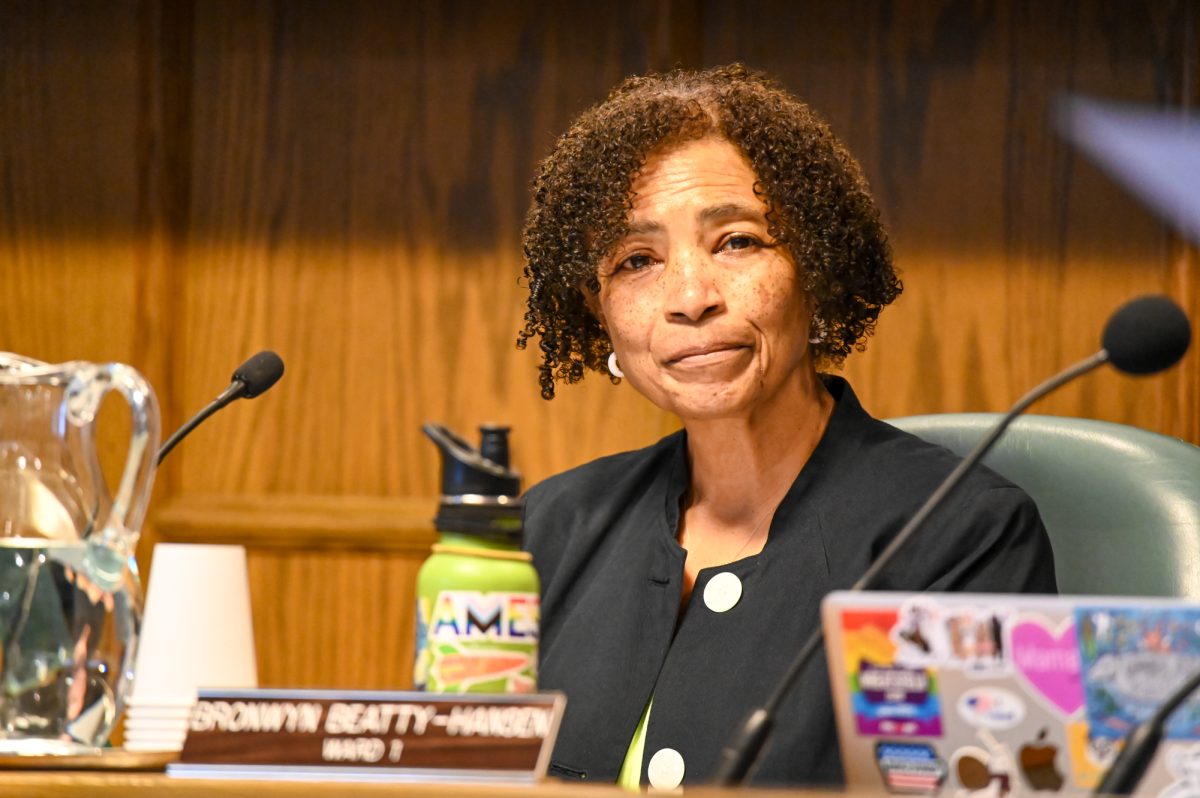LETTER: Large hog farms drive away Iowans
July 16, 2003
In Iowa, in addition to their environmental, agricultural, health and local-business concerns, hog farms have evolved into a critical land-use issue. Yet it’s not a matter of being for or against hog production — how the animals are raised and who controls production are the key issues.
Recently, I spoke with Save Kossuth County’s Environment in Algona. The group’s membership includes farmers, rural residents and others concerned about the effects of large-scale factory hog production. I talked about the work of 1,000 Friends of Iowa and my perspective on the hog issue as a member of the House Environmental Protection Committee and the House Agriculture Committee.
But mostly, I listened. Neighbors of existing confinement facilities — many of whom themselves farm and live within sniffing distance of a proposed gargantuan operation of 11,000 hogs — shared one story after another. One family had a child hospitalized with lung problems. One man reported water quality concerns. Several families noted a decline in property values. Others mentioned no longer being able to dry laundry outdoors.
Iowa has been home to a whole lot of hogs for a long, long time. But current trends should disturb anyone. In 1995, the Iowa Legislature passed HF 519, which set the stage for the wholesale expansion of factory hog farms (lest there be any doubt, I voted “no” on the bill).
In 1995, Iowa produced 14 million hogs and had 25,000 hog farmers. In 2002, there were 15.5 million hogs and only 10,000 hog farmers.
In other words, Iowa hog production increased by 10 percent in a seven-year period, even as we experienced a decline of 60 percent in the number of hog farmers. That’s an average loss of 2,143 hog farmers per year, alongside comparatively modest growth in the actual production of hogs.
It is this concentration of production, and the accompanying shift of ownership from independent family farms to large corporations, that is causing such turmoil in rural Iowa.
The shift is also causing notable concern among urban Iowans. In my informal polling of constituents as I walk door-to-door in my Des Moines legislative district, factory hog lots are the fourth most frequently mentioned concern after education, property taxes and corporate welfare.
The day after my Algona meeting, I drove back to Des Moines with my two teenagers, both of whom regularly threaten to leave Iowa for all the usual excuses (it’s too hot, it’s too cold, there’s nothing to do). The drive through northern Iowa gave them a legitimate reason to renew their threats. Repeatedly, we drove past confinement facilities that were an olfactory hazard only the grossest school lunch could rival.
While we can’t do much about the weather, if we’re serious about giving Iowa youth one less reason to flee the state, ending the shift toward greater and greater concentration within the livestock industry could only help. And with thousands of rural Iowans clamoring for substantial changes to protect their health and quality of life, there is no reason why the Legislature shouldn’t place this problem on the top of its priority list next year.
State Rep. Ed Fallon
Executive Director, 1,000 Friends of Iowa
Des Moines, IA






